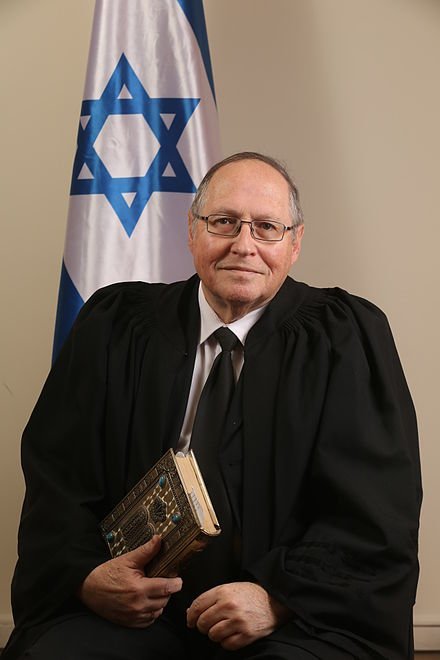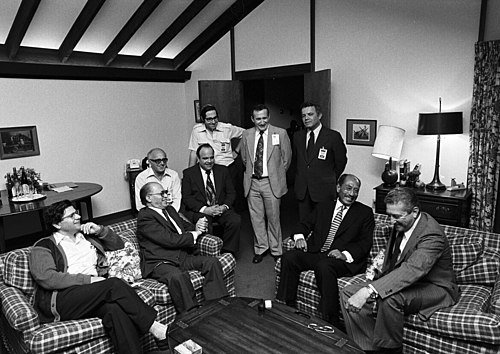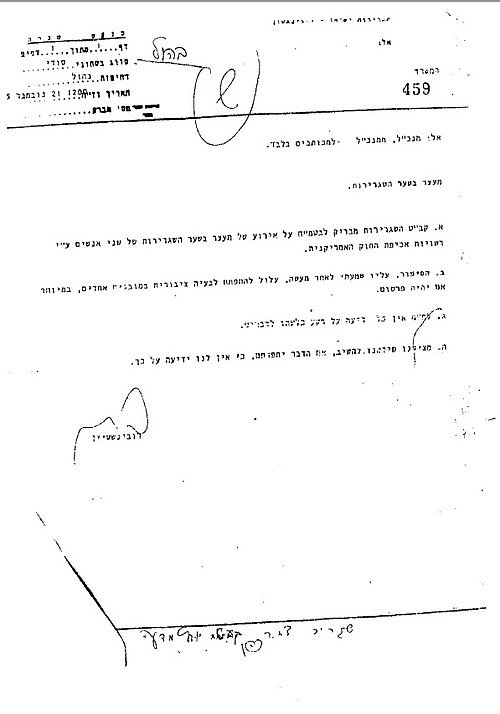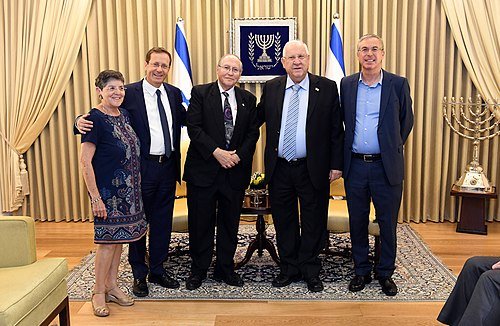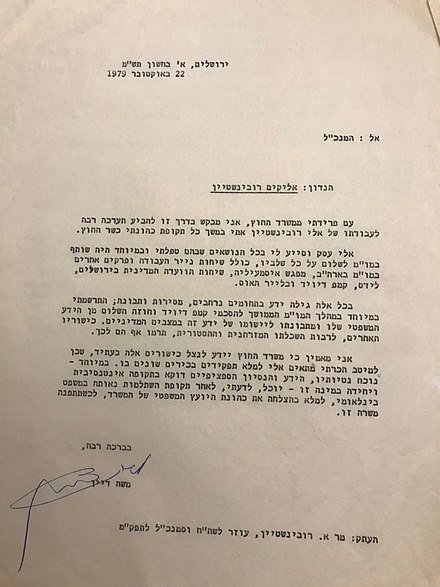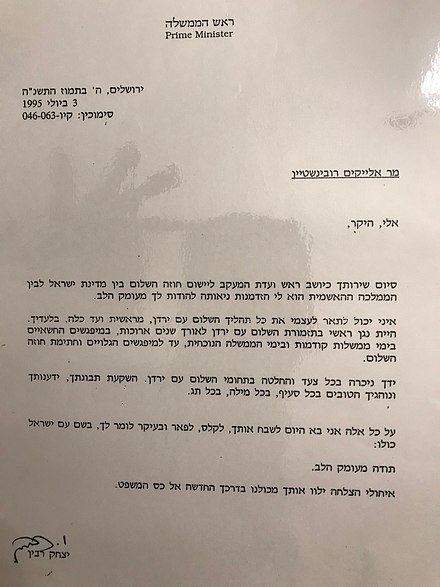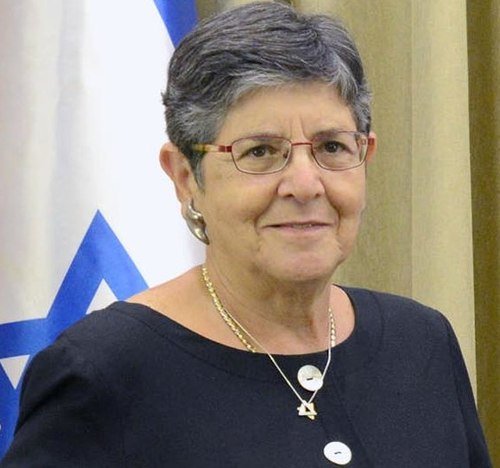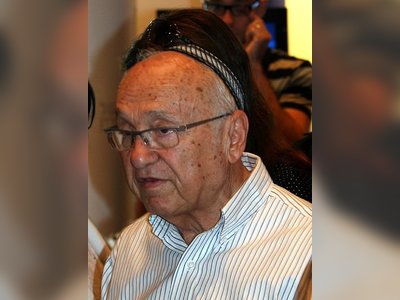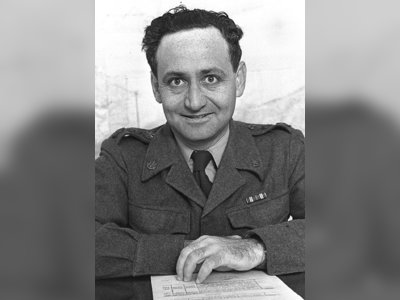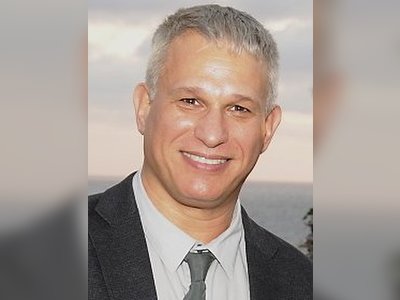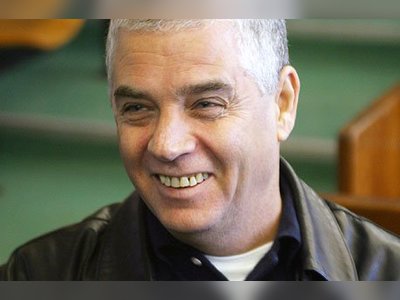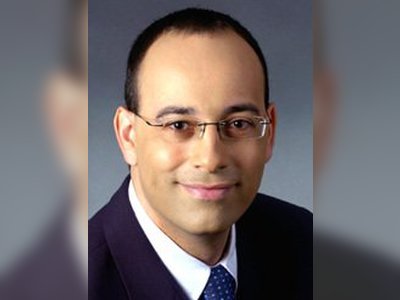Elyakim Rubinstein: A Life in Service to Israel
Elyakim Rubinstein, born on June 13, 1947, in Tel Aviv, Israel, is a distinguished jurist who has held various prominent roles in the Israeli government and judiciary. Over the years, he has served as a Deputy to the President of the Supreme Court, Cabinet Secretary, and Legal Advisor to the Government. His career has been marked by dedication and a deep commitment to Israel's welfare.
Early Life and Background
Rubinstein was the eldest son of Mordechai and Shifra, born into a family with strong ties to the land of Israel. His mother, originally from Russia, immigrated to Israel in her youth, attended the Herzliya Gymnasium in Tel Aviv, and later trained as a nurse at the American University Hospital in Beirut.
For nearly four decades, she served as a senior nurse in Tel Aviv's public health services. Notably, she was part of the medical team that the British army sent to bring Holocaust survivors from Mauritius to Israel in 1945. Furthermore, she was the first head nurse of Tel Hashomer Hospital (Sheba Medical Center), which began as a military hospital in 1948.
Rubinstein's father was a Holocaust survivor who enlisted in the Polish army in 1939 and was taken prisoner in Russia, later re-enlisting in the Polish army (Anders' Army) and eventually arriving in Israel in 1943. Tragically, his parents and many relatives perished during the Holocaust.
His father was active in assisting survivors from his hometown, and Rubinstein often accompanied him to meetings and gatherings related to this mission. Additionally, he was involved in religious education and served as a member of the Association of Agriculturalists (Ha'Ikarim).
Rubinstein spent his formative years in Givatayim, Israel. He attended the "Emunim" elementary school and, at the age of 11, participated in a Bible competition for children organized by "Dvar LeYeladim." In high school, he studied at Beit Hasefer Zeitlin in Tel Aviv, with a focus on the Oriental track.
After skipping a grade, he completed high school at the young age of 16 and immediately began studying Arabic language and literature at the Hebrew University of Jerusalem. During his final year of undergraduate studies, he simultaneously began his law studies.
He completed his first degree with distinction in Arabic studies and was drafted into the Israel Defense Forces (IDF), serving as an assistant to the editor of "Ma'arachot," the IDF's official publication. During this time, he worked on editing and translating military and Oriental literature, including Arabic, Hebrew, and English translations of guerrilla warfare manuals, such as those from the Arab, Chinese, Vietnamese, and Cuban sources.
While serving in the IDF, Rubinstein also completed his law studies with distinction at the Hebrew University's Faculty of Law in 1969. He specialized in law at the Tel Aviv District Court under Judge Yaakov Gabbay, worked in the State Attorney's Office under Attorney Plia Albeck, and studied under Joseph Cheshin, who served as the legal advisor to the security establishment.
Rubinstein received his law license in 1972. During his tenure at the Ministry of Defense, he was involved in preparing materials for the inquiry committee on the oil pipeline affair. Simultaneously, he pursued a master's degree in contemporary Judaism and served as a reservist judge in the IDF's Judea and Samaria military court.
Following the Yom Kippur War, Rubinstein returned to work in the legal department of the Ministry of Defense. In preparation for the deliberations of the Agranat Commission, he played a key role in preparing the legal case for then-Defense Minister Moshe Dayan, alongside Naorah Bernach, under the legal supervision of Joseph Cheshin.
He continued to assist Dayan when he later became Minister of Foreign Affairs, ultimately appointing Rubinstein as his bureau chief. Rubinstein was involved in negotiations with Egypt during the Camp David Accords (1978-1979) and the subsequent peace agreement between Israel and Egypt.
Diplomatic Career and Beyond
Rubinstein's diplomatic career continued to evolve when he was appointed as a legal advisor to the Ministry of Foreign Affairs in 1981. In this role, he focused on legal matters related to Israel's relations with the United States and the Arab world. He also served as the Deputy Director-General for Special Tasks and later as Deputy Director-General for the Implementation of the Peace Treaty.
When Yitzhak Shamir assumed the role of Foreign Minister, he retained Rubinstein as his bureau chief. Rubinstein continued to be involved in negotiations, including the autonomy and normalization talks with Egypt (1982-1995) and negotiations regarding the deployment of multinational observer forces in the region. During the First Lebanon War, he played a role in formulating the Israel-Lebanon Agreement of 1983.
In November 1985, Rubinstein found himself in a sensitive diplomatic incident when Jonathan Pollard and his wife were arrested at the gates of the Israeli Embassy by U.S. authorities after entering the compound in their car.
Rubinstein was overseeing the embassy in the absence of Ambassador Meir Rosen on that day. For years, it had been reported in the media that he had decided to have them removed. However, it was revealed later that he only learned of their arrest after the incident had occurred, thanks to the security officer of the embassy who informed him immediately after Pollard's failed entry attempt.
Rubinstein dedicated himself to efforts to secure Jonathan Pollard's release from custody, engaging with the Israeli government, the U.S. Congress, and Jewish organizations in the United States. While Jonathan Pollard's wife was ultimately released thanks in large part to these efforts, Jonathan Pollard himself remained imprisoned for many years.
When Yitzhak Rabin returned to the position of Prime Minister for his second term, Rubinstein was appointed as the Cabinet Secretary. He continued in this role in subsequent governments under Prime Minister Shimon Peres and later served an additional two years upon the request of Prime Minister Yitzhak Rabin, who had brought him back to the position he initially held as Deputy Cabinet Secretary.
In total, Rubinstein served as Cabinet Secretary from 1986 to 1994. In this capacity, he was involved in diplomatic negotiations with Egypt, Jordan, and the Palestinians. He played a key role in the Madrid Peace Conference and the subsequent Washington talks (1991-1993) as the head of the Israeli delegation to the peace talks with the Jordanian-Palestinian delegation.
He also served as the head of the Israeli delegation for negotiations with Jordan (1993-1994), leading to the Israel-Jordan Peace Treaty. This treaty established the border between Israel and Jordan, which had never been demarcated (except for a small section in the south), relying on theoretical definitions from the Mandate period.
The agreement also included land swaps, transferring all cultivated lands east of the armistice line to Israeli sovereignty, except for specific arrangements in Tzofar and along the rivers.
After serving as Cabinet Secretary, Rubinstein briefly served as a legal advisor to the National Security Council and Assistant to the Prime Minister (1994-1995). Subsequently, he became a judge in the Jerusalem District Court (1995-1997).
In addition to his government service, Rubinstein was deeply involved in various public and social initiatives. He served on the board of directors of Yad Vashem, as a member of the Israel Press Council, and as Chairman of the Council for the Welfare of the Soldier. He has also written and published various articles on legal, political, and diplomatic issues.
Judicial Career and Supreme Court
Elyakim Rubinstein's judicial career reached its zenith when he was appointed to the Supreme Court of Israel in September 1997. As a Supreme Court justice, he adjudicated countless cases, demonstrating a balanced and independent judicial approach. During his tenure, he was known for his emphasis on civil liberties and human rights.
In particular, he played a pivotal role in several landmark decisions, including those involving the right to equality and non-discrimination, freedom of speech, and the rights of minorities.
Justice Rubinstein served as Deputy President of the Supreme Court and later as Vice President, with his term concluding in 2017. Throughout his time on the bench, he was committed to maintaining the rule of law and ensuring that the judiciary remained an effective and impartial branch of government. His rulings have been influential in shaping Israeli jurisprudence.
Legacy and Contributions
Elyakim Rubinstein's career reflects a lifelong commitment to the State of Israel and its well-being. He has served in various critical roles across the government, from the Foreign Ministry to the Supreme Court. His dedication to diplomatic negotiations and legal matters related to Israel's security and international relations has been instrumental in shaping the nation's history. As a judge, he has upheld the principles of justice, civil rights, and human dignity.
In addition to his contributions to the legal and political spheres, Rubinstein's writings and public activities have further enriched Israel's intellectual and cultural landscape. His legacy will continue to impact Israeli society and the legal community for generations to come.
- אליקים רובינשטייןhe.wikipedia.org
